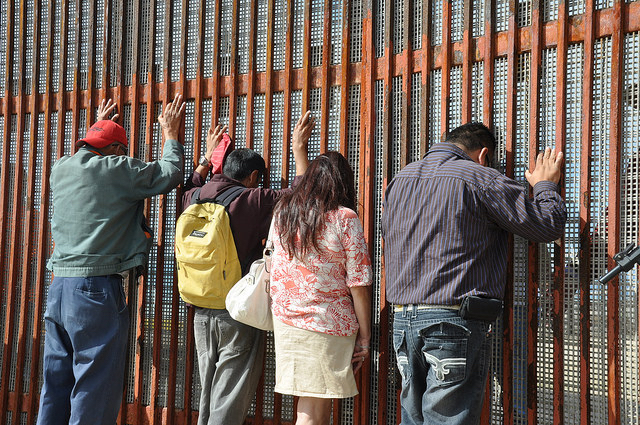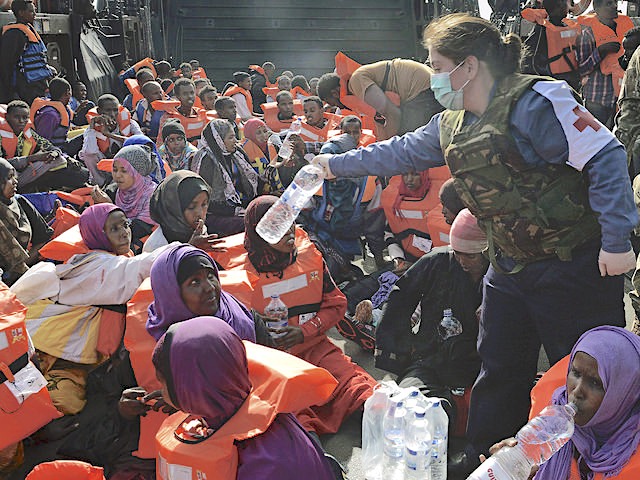Perhaps the most difficult thing about trying to cope with the current state of politics in the United States is its utter ridiculousness. The ways of American politics have seldom been rejigged in such a revolutionary way, as is currently the case.
Many of the old nostrums are passing away, and the attacks raining down upon truths and institutions that most civilized people had come to regard as the unchanging furniture of the household of state has left many bewildered and bereft. In general, the best thing to do when confronted by unfamiliar conditions is to follow the money.
But one thing which is novel in the current situation is the degree to which the moral fabric of American civilization, always more threadbare and tattered than its legions of boosters seemed to understand, is not being consigned unceremoniously to the ash heap of history.
As with most of the truly grim features of the present predicament, this one is not entirely new. Utah congressman Jason Chaffetz was so impolitic as to give voice to the thought (common among spectrum of running dogs stretching rightwards from the Clinton wing of the Democratic Party) that poor people should demonstrate their commitment to personal responsibility by foregoing “that new iPhone they just love” to save for healthcare. This leitmotiv of rightwing politics is hardly new.
But, whereas Mitt Romney suffered severe political consequences for making similarly intemperately honest statements, Chaffetz’s comments elicited little in terms of critical backlash. Everyone knows (or thinks they know) that the poorness of the poor is due to their laziness. To believe otherwise would be to call the system as a whole into question.
There is, it seems, no political position so vile that it cannot be worked into the orthodoxies of Trumpite Republicanism. Thus, for instance, the recent proposal that children of undocumented aliens might be separated from their parents in the course of repatriating them to their country of origin, or to Mexico, or wherever (the endpoint of this policy has not be fully worked out). As is so often the case, the argumentation underlying the nauseous idea masquerades as the outcome of a crusading zeal to uplift healthy morality and impugn its lack.

Parents (mothers particularly) so the argument goes show an unacceptable disregard for the wellbeing of their children when they put them in the position of illegality by sneaking them across the border into the United States. Their inclination to do so originates in a fundamental, and fundamentally regrettable, shiftlessness.
Rather than remain in their country of origin to do the hard work of raising a child, they forsake the virtues of grit and thrift for the opportunity to leach off the benighted American taxpayer by taking advantage of the rich (and rather excessive) generosity of the welfare state.
This would seem like virtue, if it did not require the willful denial of the actual situation on the ground. For some reason, a large proportion of people in the country feel that, although they prefer to stay in their own native region almost without regard to condition or actual opportunities (to say nothing of the difficulties involved in migration) those in other places are blithely willing to move at the drop of a hat.
That such a move might involve significant degrees of danger, discomfort, and expense is untroubling to those motivated by the defense of the public purse, or the wish that said purse was done away with entirely.
It is similarly ironic that those who defend the premise that such behavior amounts to unfit parenting don’t seem to regard the attempt to raise a child in an active war zone, or in a kleptocracy subject to the depredations of gangsters of both the public and private variety as likewise unsuitable.
Such people (whatever the position in the income distribution) tend to rest secure in the belief that the poor, the undeserving poor if you like, merit their condition because the lack the personal application to make themselves into stolid members of the middle class (or millionaires as the American myth might have it).
Then, too, there is the question of what has come, in the argot of the hard right, “weaponized” refugees. According to this way of thinking, refugees amount to an attack on the values and institutions of the West in one (or both) of two ways. First, the stream of refugees, some of whom might actually be in legitimate distress or danger, provides cover for the Mohammed Atta’s of the world and their ilk to penetrate our borders and perform acts of unspeakable horror. Never mind the fact that, given the synergy between the (continuing) history of Western imperialism and the facilities of the network society, people prepared to wreak grim havoc are just as likely to be home grown.
Why bother with the hassle of traveling to some training camp in Afghanistan when you can learn the trade of Jihad and mass killing in Sheboygan or Sioux City? And, just to be clear, there is no reason that people with blue eyes and blonde hair should be intrinsically less inclined to act thus. Timothy McVeigh certainly did not require the ministrations of radical Islam to convince himself that burying children and other innocents beneath tons of rubble constituted a legitimate form of political expression.
The second form of weaponization is somewhat subtler, if not less pernicious, than the first. It involves the claim that the very presence of people from a culture foreign to our own (whatever that might prove to be) will inherently have the effect of gnawing out the entrails of our civilization. This idea is all the worse for the traction that it has with strata of opinion to the left of the lunatic fringe.
The average liberal, frequently exposed to the language of the “clash of civilizations” is wont to think that difference implies danger, even if humane motives impose upon us some duty of care. Even Slavoj Zizek (who admittedly often strays into lunatic territory at the opposite end of the spectrum) has shown himself susceptible to this way of thinking.
Liberal versions of this idea tend to absolve the refugees themselves. After all, it’s not (necessarily) their fault that they were indoctrinated into an uncivilized culture. For conservatives, by contrast, the incursion of “foreign” cultures into the nominally unitary culture of the West is the expression of some malign agency, either of jihadist zealots, or of the inscribed propensity of non-Western cultures to colonize that of the West.
Herein we find, as is so often the case with political and cultural formations habituated to the domination of others, a convenient reversal, in which the treatment so long meted out to the subaltern group is actually what the subaltern group itself wishes to return in kind.

But there is yet another way in which refugees may be transformed into weapons, one similar to the second and which commends itself rather more to people like Donald Trump and his white nationalist coterie. It can be seen in Mr. Trump’s insistence that those rounded up in the ever-expanding ICE raids would be deposited with Mexico. The Mexican government made the point (quite legitimate in fact) that they were under no obligation to accept them, and not only for the reason that a large proportion of them were not citizens of Mexico to begin with.
And thus the prospect arises that these people might be shunted into an even worse condition that simply living as hunted fugitives in the United States. Their vulnerability is being converted into a condition of statelessness and one can easily imagine (since no hint of scruples of fundamental human decency would prevent) the Trump Administration simply shunting them into some sort of camp structure on or near the Mexican border in order to compel Mexico to accept them to alleviate their degradation.
It is perhaps worth mentioning that a version of that was what happened to Jewish refugees fleeing the advancing Nazi invasion of Poland in 1939. Which is not to say either that Trump is Hitler (he isn’t) or that the United States is on the verge of invading Mexico (we aren’t) but only that the use of humanitarian sympathy as a tool of compulsion in conflict is by no means foreign to the “civilized” world.
The increasing number of refugees and displaced persons, which has recently risen above 60 million people, is an indication of multi-faceted world crisis. But for politicians sufficiently bereft of conscience it represents an opportunity.
How better to weaken one’s enemy than to sap their resources, their infrastructure, and (at least arguably) their cultural integration that by compelling them to actually act on the humanitarian values that tend to be trumpeted when there is no discomfiting need to act on them.
Photographs courtesy of the BBC World Service, Joseph Voves, and the Roman Catholic Archdiocese of Boston. Published under a Creative Commons license.





